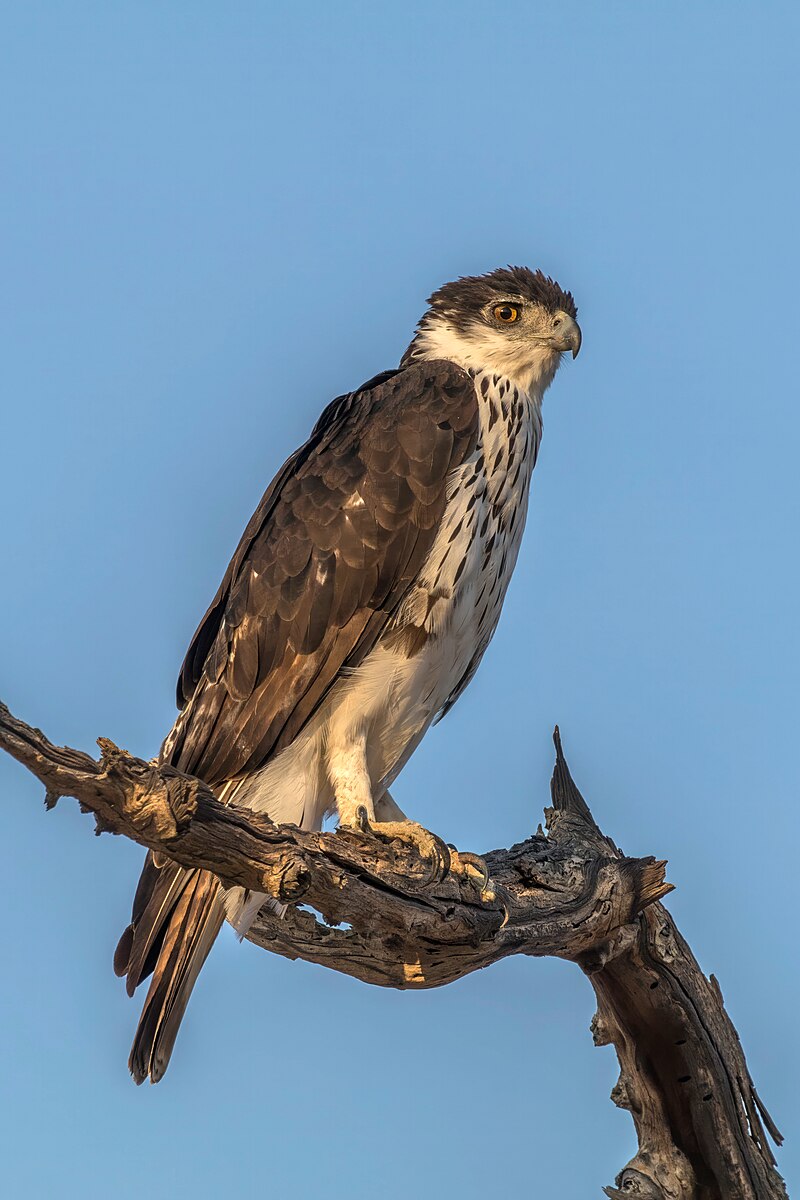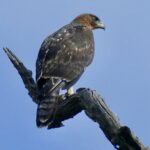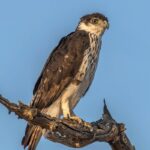African Hawk Eagles (Aquila spilogaster) are majestic birds of prey found throughout sub-Saharan Africa. These impressive raptors are known for their striking appearance and powerful hunting skills. However, the question of whether African Hawk Eagles can be kept as pets is a complex one, with various legal, ethical, and practical considerations.
Legal Considerations
The first and foremost factor to consider when exploring the possibility of keeping an African Hawk Eagle as a pet is the legal aspect. In many countries, it is illegal to keep eagles or other birds of prey as pets without the necessary permits and licenses. These laws are in place to protect wildlife and ensure the well-being of these animals. Potential pet owners must thoroughly research and understand the legal requirements in their respective regions before even considering the acquisition of an African Hawk Eagle.
The Nature of African Hawk Eagles
 Image source: African hawk-eagle by Charles J. Sharp
Image source: African hawk-eagle by Charles J. Sharp
African Hawk Eagles are wild animals, and their natural behaviors and needs differ significantly from those of domesticated pets. These birds are solitary, highly skilled hunters, relying on their keen eyesight, agility, and strength to catch prey. In the wild, they prefer to perch on tall trees or soar high overhead, rather than living in close proximity to humans. This inherent nature can make it challenging to provide an appropriate living environment and care for an African Hawk Eagle as a pet.
Housing and Care Requirements
Providing a suitable living environment for an African Hawk Eagle is a complex and demanding task. These birds require tall trees or structures for perching and hunting, as well as a varied diet consisting of birds, mammals, reptiles, and insects. Additionally, they are sensitive to changes in their surroundings and can become stressed if their environment is not tailored to their specific needs. Maintaining the proper housing, feeding, and environmental conditions for an African Hawk Eagle would require a significant investment of time, resources, and specialized knowledge.
Potential Risks
Keeping an African Hawk Eagle as a pet also comes with potential risks. These birds are powerful and can pose a threat to both humans and other animals. Their strong hunting instincts may lead them to attack smaller pets or livestock, potentially causing harm or even death. Furthermore, an agitated or stressed African Hawk Eagle may become aggressive and inflict serious injuries. Responsible pet owners must carefully consider these risks and ensure the safety of themselves, their families, and their other animals.
Alternatives to Keeping African Hawk Eagles as Pets
For those who are passionate about African Hawk Eagles and wish to support their conservation, there are alternative ways to engage with these magnificent birds without keeping them as pets. Participating in conservation efforts, such as supporting organizations dedicated to protecting raptors and their habitats, can be a meaningful way to contribute to the preservation of these species. Additionally, birdwatching and photography provide opportunities to observe and appreciate African Hawk Eagles in their natural environment without disturbing them or compromising their welfare.
In conclusion, while the idea of keeping an African Hawk Eagle as a pet may be tempting, it is a complex and challenging endeavor that requires careful consideration of legal, ethical, and practical factors. These birds are wild animals with specific needs and behaviors that may not be compatible with the typical pet-keeping experience. Instead, animal enthusiasts are encouraged to explore alternative ways to appreciate and support the conservation of African Hawk Eagles, ensuring the well-being of these magnificent raptors for generations to come.
References:
– African Wild forum
– Reddit post
– GhanaWeb article
– The Peregrine Fund
– Wikipedia


